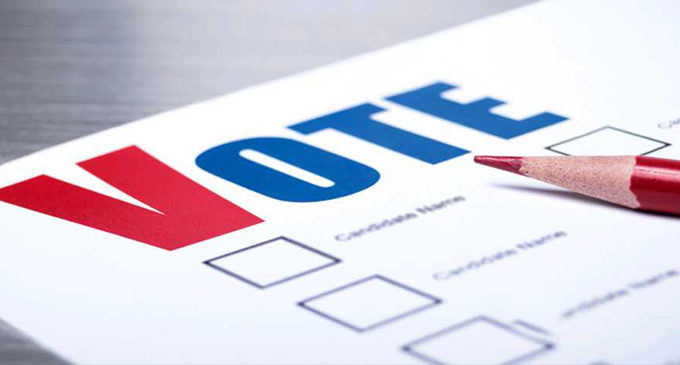Commentary: The exhausted majority is asking, ‘Candidates, keep it clean!’

By Melinda Burrell
On Dec. 31, as I uncorked champagne with my family, my stomach suddenly clutched with dread. For the first time, I feared the turning of the new year. Other new years I’ve anticipated with joy or at least curiosity. But 2022 loomed darkly.
2022 brings midterms, and elections can be triggers for serious conflict. Given our current polarization, I suspect the anger and division will accelerate as November nears.
But I’m hoping this can be stemmed. We’re hearing more about our “exhausted majority” – the two-thirds of Americans who are tired of the polarization and anger that surround us, are flexible in their attitudes, and want a way out of the divide.
Perhaps proving that research, dozens of organizations have sprung up to help Americans talk across our political divides. Braver Angels, Living Room Conversations, Urban-Rural Action, are just a few, fueled by volunteers driven by a strong sense of civic duty. These organizations help build skills necessary for a democracy, such as engaging in curious conversations and fostering relationships not bound by polarized stereotypes.
Perhaps this means we can flip the 2022 elections from a source of conflict to a means of community empowerment and enrichment. One possible approach is the development of campaign pledges, something that has been successfully used in other countries experiencing toxic polarization.
With this approach, a local organization or group of organizations, credible to both parties, reaches out to all candidates in an election and invites them publicly to pledge not to use inflammatory or divisive rhetoric on the campaign trail.
The organization and the candidates design the elements of the pledge together, then have a joint, public signing ceremony. The ceremony gives the candidates yet another much-desired opportunity for press coverage. It also enables local media and civil society to launch a process of monitoring candidates’ in-person as well as online speech.
There are many empowering aspects of this approach. Most fundamentally, at a time when competing campaigns can separate a community, creating a pledge brings people together. Candidates and other community members join to discuss what they feel is and is not acceptable speech in their community.
Campaign pledges also are a chance for communities to articulate their expectations of their leaders, in terms of discourse and behavior. Finally, such campaign pledges reset standards of public speech, reorienting them toward norms of respect and thoughtful inquiry, rather than knee-jerk accusations and insults.
In this way, campaign pledges normalize nonviolence and rule of law as the modes of interaction in a democracy. This has long-term, positive effects. Recent research shows that it is norms and leadership which are key to maintaining peaceful societies.
Of course, there are complications to any such community dialogue process. As school board conversations around critical race theory have shown, even the act of creating a pledge could have contentious aspects.
Enlisting the aid of experienced facilitators can ensure that the conversation is inclusive and constructive. Community mediation or dispute resolution centers can help with this, and as could some of the dialogue organizations noted above.
In some ways, our anger toward each other reveals how much each of us cares about our country and its future. As we start the new year, let’s try new approaches to strengthen the norms of our democracy in 2022 and beyond.
Melinda Burrell, syndicated by PeaceVoice, is a humanitarian aid worker who studies polarization and trains on the neuroscience of communication and conflict. She is on the board of the National Association for Community Mediation, which offers resources on cross-divide engagement.









